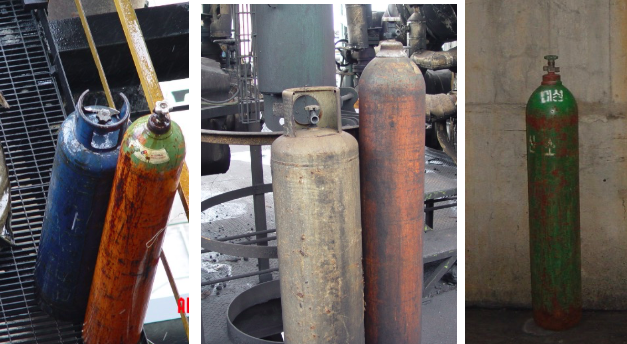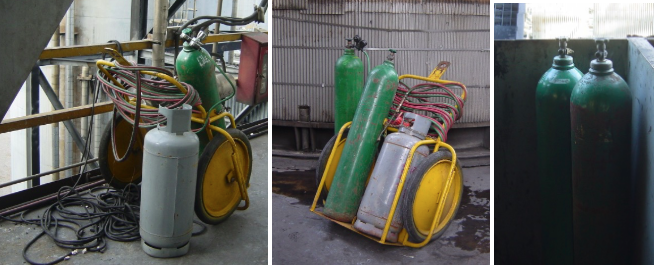By Gary Pitman
Cutting torch assemblies and compressed gas cylinders are very common items in the refinery unit. They also pose an extreme safety threat.
It’s up to the unit operators to make sure the unit is safe. They should police the unit during their outside readings to monitor for unsafe conditions. Operations personnel should review maintenance work when it is complete and at the end of each shift, at which time most of these problems can be prevented. The maintenance personnel should remove these systems and loose cylinders to the units plot edge.
Loose compressed gas storage cylinders should have caps installed and be housed in storage carts, chained to immovable objects, or laid down at the unit plot edge. In the event of a fire, they are explosive. They could be knocked about from fire fighting equipment, especially from water monitors used in fire suppression.
Oil and pure oxygen are a very combustible mix, as expressed on storage cylinders warning labels. LPG storage cylinders are very explosive when subjected to fire or excessive heat.
Here are some photos taken from a site visit during a unit audit (cold eye review):

Safety Tips to Keep in Mind When Handling Compressed Gas Cylinders:
- The compressed storage cylinder caps should always be in place when the systems are not being used, or when cylinders are in storage.
- Valves could be open or leaking and can have charged hoses or leaking gases.
- Storage cylinders could be damaged by impacts.
- Unsecured storage cylinders could be knocked over and the valve damaged.
- Make sure all signage is appropriately communicated and displayed to convey the potential hazard (e.g., “Caution, Compressed Gases”).
- Cylinders should not be stored near elevators, in corridors, or in locations where heavy objects may strike or fall on them.
- Cylinders are secured at all times with a chain or strap or stored in suitable protective containers when not in use. Metal and wooden racks are permitted for cylinder storage.
- If a chain or strap is used to secure cylinders, the chain or strap is kept tight and at a level that prevents cylinders from falling. All cylinders need to be individually secured.
- Cylinder valves are kept closed on all cylinders in storage. Cylinder valve protection caps, when provided, are kept in place and hand tightened except when cylinders are in use or connected for use.
- Oil, grease, or other readily combustible substances are not permitted to come in contact with the valve, cylinder, regulator, gauge, or fittings. Certain gases such as oxygen could react with the petroleum-based material with explosive violence.








Leave a Reply